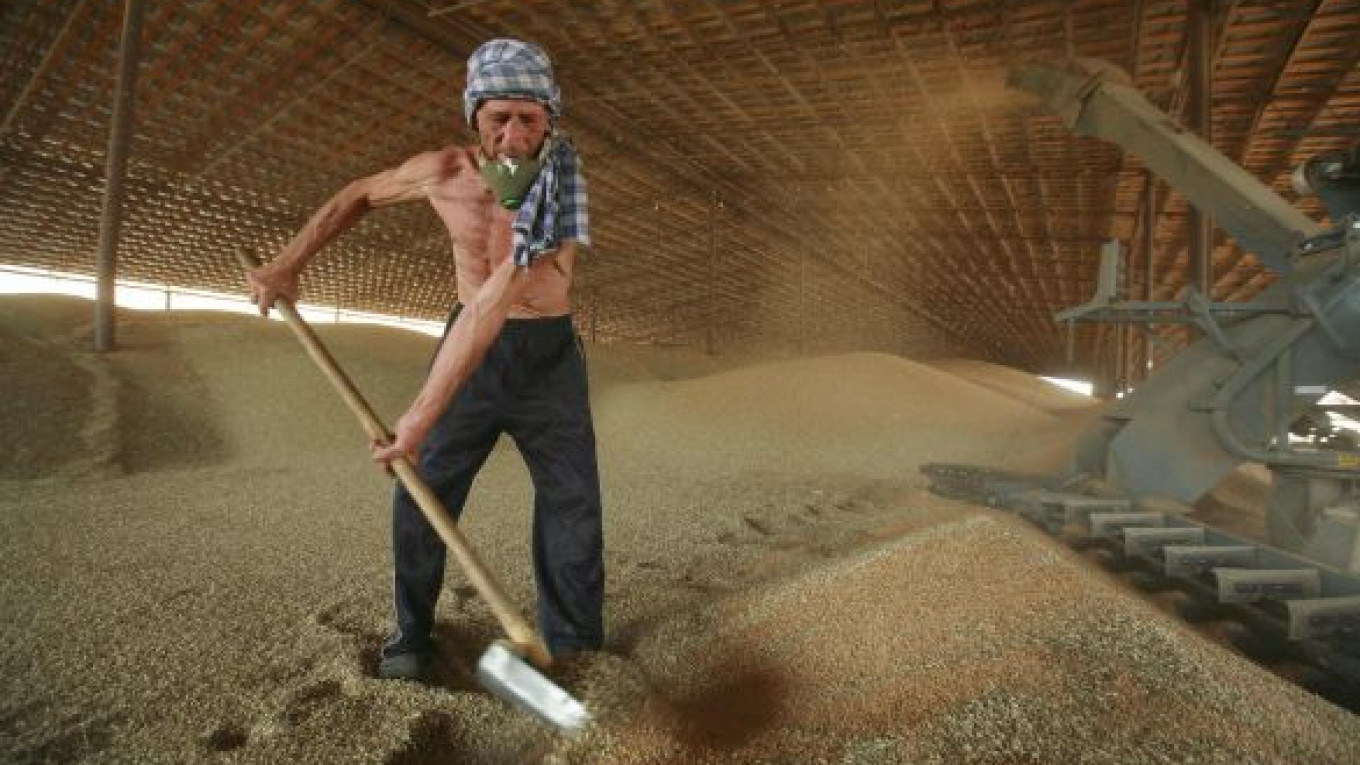Drought-devastated Russia could extend a grain export ban into next year and may cut its 2010 beet sugar output, reflecting the dimming prospects for crops in the scorched Black Sea breadbasket region.
Russia, the world's No. 3 wheat producer in 2009-10, said last week that it would halt grain exports until the end of 2010 because the country's worst heat wave on record destroyed vast tracts of wheat and barley crops.
But Prime Minister Vladimir Putin said Monday that the export ban may be extended into 2011, warning that the fall in this year's crop could be worse than expected.
"If someone is waiting for Dec. 31, he is waiting in vain," Putin told a government meeting. "A decision may be made only after the harvesting campaign results are clear."
Russia did say, however, that it would consider a proposal by Egypt, the world’s biggest wheat importer, to reschedule shipments of wheat that were agreed to before Russia’s grain export ban.
Egypt asked Russia on Sunday to honor and reschedule contracts to ship 540,000 metric tons of wheat, even though some of the wheat bought by Egypt would not be able to leave Russia until after Aug. 15.
“There will be a review of the crop situation in October, and the view will be clearer,” First Deputy Prime Minister Viktor Zubkov said in a statement. “This will allow for a plan to reschedule previous wheat agreements with Egypt.”
The drought and the wildfires have sent wheat prices soaring, and the grain export ban is likely to squeeze supplies and lead to a scramble for grains from other producers like Australia.
Wheat prices slid for a second day on speculation that farmers will plant more of the grain after prices surged to a 23-month high last week.
December-delivery wheat fell 0.6 percent to $7.51 a bushel on the Chicago Board of Trade by 10:00 p.m. Moscow time.
Chicago wheat has risen 36 percent this year as a crops have been hurt by heat wave in Russia, dry weather in Kazakhstan and the European Union, and floods in Canada.
Analysts SovEcon estimated on Monday that Russia's wheat crop could fall by nearly a third to 43.5 million metric tons. This is well below the consensus in a Reuters snap poll on Aug. 5 of 46.5 million metric tons and is likely to take a big chunk out of the global wheat crop in the new 2010-11 season.
Wheat exports in 2010-11 may be about 3 million metric tons, SovEcon forecast, plunging from the 18 million metric tons that the International Grains Council estimates were shipped in 2009-10.
In neighboring Ukraine, the world's sixth-largest wheat exporter in the 2009-10 season, bad weather has also forced analysts and officials to cut crop and export forecasts.
A senior Ukrainian Farm Ministry official said this year's wheat harvest could fall to about 17 million metric tons, below the consensus in a Reuters poll last week of 18.1 million and down from 20.9 million in 2009.
Grain exports from Ukraine are also facing delays after the introduction of a new system of customs controls last week.
The ban in Russia has already forced some exporters to cancel major contracts of Black Sea wheat to Bangladesh.
"We see more deals being canceled as nothing can be done about it," said one Singapore-based trading manager. "People have no choice but to go for Australian wheat as the U.S. is still more expensive due to higher freight costs."
The drought could also force Russia to cut beet sugar output to 3.2 million to 3.5 million metric tons from an earlier expected record 4 million, Andrei Bodin, chairman of the Russian Sugar Producers' Union, a lobby group, told Insider in an interview.
"With the 3.2 million [metric tons], we can finish the year with the same results as last — stocks of 2.5 million tons," Bodin said. "So we may have the same imports next year."
Analysts estimated that imports for the whole of this year will not be much more than the 1.8 million metric tons Russia has imported so far because of a rise in import tariffs and an early start of the sugar beet processing season.
(Reuters, Bloomberg)
A Message from The Moscow Times:
Dear readers,
We are facing unprecedented challenges. Russia's Prosecutor General's Office has designated The Moscow Times as an "undesirable" organization, criminalizing our work and putting our staff at risk of prosecution. This follows our earlier unjust labeling as a "foreign agent."
These actions are direct attempts to silence independent journalism in Russia. The authorities claim our work "discredits the decisions of the Russian leadership." We see things differently: we strive to provide accurate, unbiased reporting on Russia.
We, the journalists of The Moscow Times, refuse to be silenced. But to continue our work, we need your help.
Your support, no matter how small, makes a world of difference. If you can, please support us monthly starting from just $2. It's quick to set up, and every contribution makes a significant impact.
By supporting The Moscow Times, you're defending open, independent journalism in the face of repression. Thank you for standing with us.
Remind me later.






